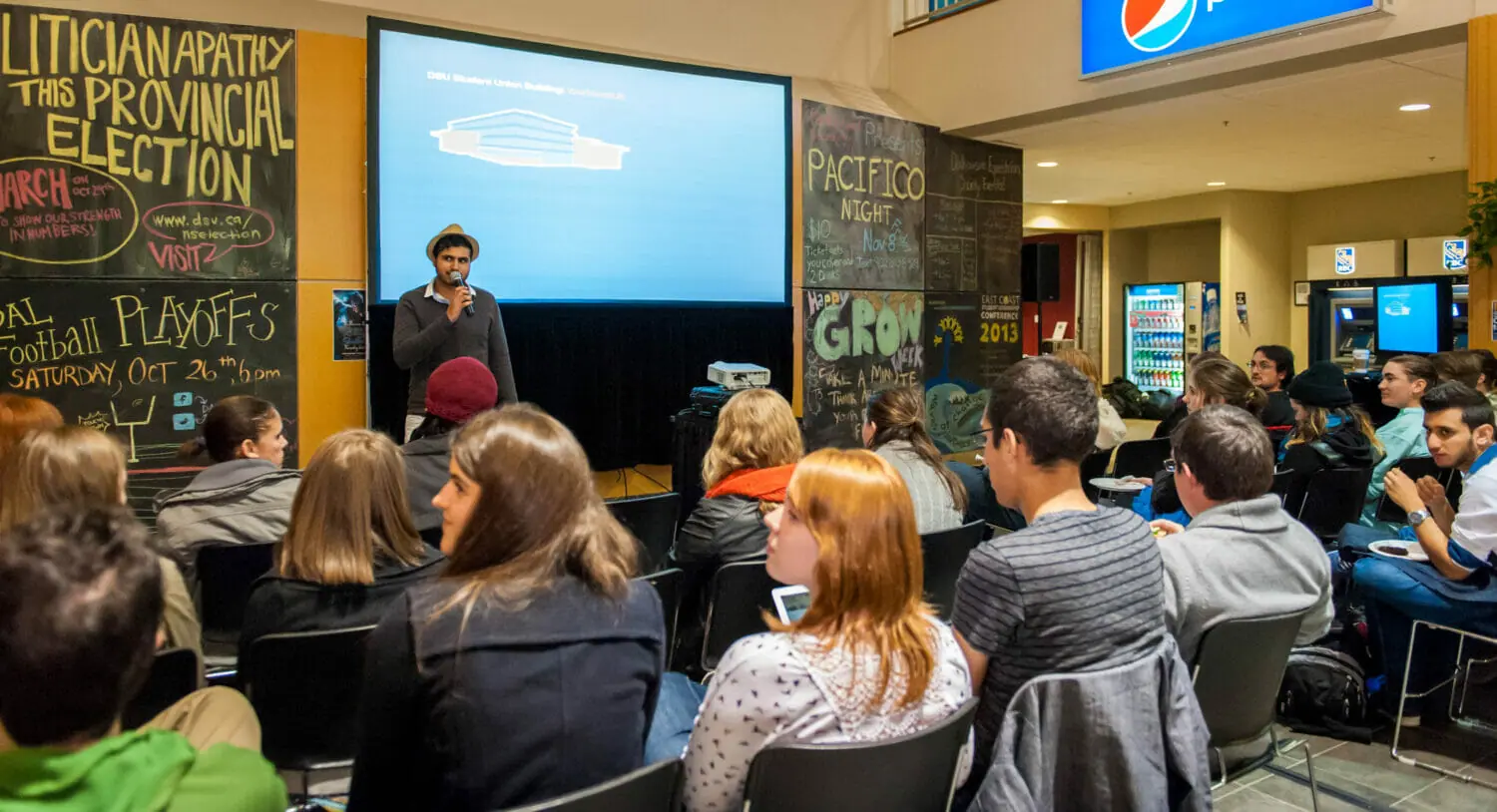
Levied societies will be fine in new SUB
Dear editor:
Dalhousie University is an institute with an identity crisis. With a mandate to support sustainable practices and with a growing and vibrant student body, the school is plagued with brutalist architecture and squabbling societies who never learned how to share. After attending the recent consultations surrounding the new SUB design, I was disappointed to bear witness to the petty arguments put forward by some of the ‘respected’ societies on campus.
In the new space, each of the 300 student societies will have access to a common meeting space, three separate and private boardrooms, print facilities and society storage. Larger societies such as the Gazette and NSPIRG will continue to have private offices in addition to the aforementioned common areas. The overall design of the building is also incredibly sustainable. While the society hub encourages cooperation between societies and the creation of community, the overarching design of the building incorporates features such as a green roof, greywater storage and living walls. With brutalist buildings such as the Killam and the LSC, the new design is exactly what this university needs.
I was disappointed to find, therefore, that the consultation session held on Oct. 28 was the scene of petty squabbling among societies who might by losing some of the privileges they’ve had since time immemorial. Currently, DASSS, the Dalhousie Gazette and NSPIRG take up almost all of the office space on the third floor of the SUB. Members of the two latter organizations were in the crowd and actively arguing against the society hub for petty reasons. I know members of these organizations who use these spaces as private offices and storage areas. This is a building meant to service the entire student body (including the 300 student societies), not a privileged few.
The Dalhousie Gazette, one of the main offenders at the consultation, should not be worried about losing private office space; they should be rejoicing that the new society hub will give them access to new opportunities to connect with other students and be in the same location where student news is made.
Sincerely,
Eric Millan
Keep stunts out of the classroom
Dear editor:
Canada’s oil sands are undoubtedly a contentious issue, but as university students we are required to give our full consideration to all aspects of these issues when in the classroom. Late last month, some of my fellow graduate students disrupted class because of the nature of the content. This session featured a two-person panel on the oil sands and was especially contentious given that one of the guest presenters was a high-level executive involved in the oil sands industry. The students who were disrupting the class decided that playing a game of “Big Oil Bingo,” complete with scorecards, candy prizes and heckling every time someone completed a “Bingo,” was an effective way to advance an environmental message. It was not.
It was a stunt—a poorly planned one that had no place in a classroom.
There are two things that the students who organized this stunt failed to understand or think about in their planning. First, the way they delivered their message completely destroyed whatever credibility their message could have had. Second, it was contrary to the very spirit of learning in an academic institution: considering contentious issues and challenging the assumptions associated with them.
The organizers undoubtedly sought to make a statement of some sort on the oil sands and the executive from the oil sands industry. The idea of delivering an environmental message against the oil sands certainly sounds admirable. However, by heckling and interrupting, they not only forgot what that message was supposed to be, but more importantly, they forgot who it was for. Their approach of heckling and interrupting targeted the presenter, not the people listening. It made whatever message they wanted to convey personal—you vs. us; we are right, you are wrong—and everyone else listening, fellow students, the very people who their message was intended to reach, became uncomfortable—bystanders caught in the middle of a crossfire. By targeting the presenter, the organizers of this stunt effectively alienated their audience and failed to convince anyone they were worth listening to.
That these students chose to disrupt a graduate-level class is much more disturbing. By making a mockery, the presentations became wasted opportunities for all students, but the organizers of this stunt in particular, to challenge assumptions on oil sands issues. The organizers could have taken the time to learn how other people view the oil sands, and to perhaps convince them that they could be wrong, not by heckling, but with rational, reasoned commentary. Instead, they chose to view this issue in extremities, leaving no room for anyone, themselves included, to challenge their assumptions on the issue. Where else is it more appropriate to learn how to challenge assumptions than in a university classroom? Sometimes that means listening to people who hold a different view. These students, graduate students, failed to listen. Instead of choosing to further their understanding of a contentious environmental issue, they chose cheap theatrics reflective of a smug mentality that suggests they know better than everyone else.
The oil sands may very well be one of Canada’s biggest environmental disasters in the making, but that message will only resonate with well-reasoned, insightful and evidence-based discussion and debate. The graduate students who organized this stunt owed it to themselves to listen to the presentation. They, along with any other students who may consider disrupting a class because of the content being discussed, should realize their responsibility to give full consideration to different views, and that no amount of heckling or candy throwing will change anyone’s opinion on already polarized issues. Such stunts do not belong in a classroom.
Jeff Blair is a graduate student in the School for Resource and Environmental Studies. He is in his second year toward a Masters of Environmental Studies degree.

Recent Comments